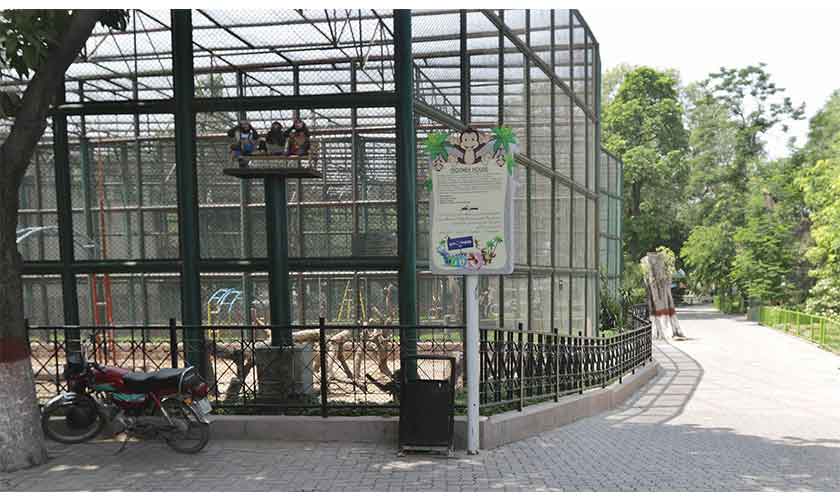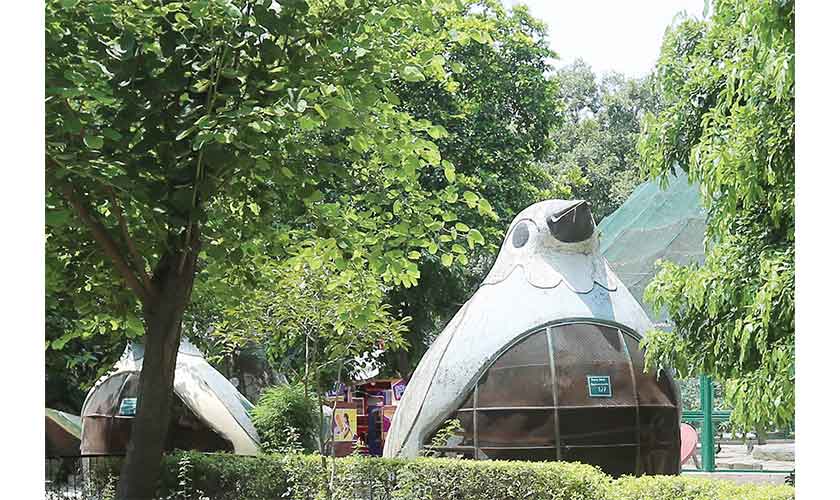he cash-strapped Wildlife Department has recently initiated a venture whereby animal cages, moats and enclaves at Jallo Forest and Wildlife Park will be leased out to private animal breeders.
The project, a part of the department’s public-private partnership programme, is aimed at generating revenue from keeping and sheltering animals and birds of various kinds. It has already raised eyebrows as concerned citizens are not sure as to how transparent it will be.
While private breeders will have the freedom to breed species of animals and birds of their choice at Jallo and control their sale and purchase, maintaining the security and selling of gate tickets will remain the responsibility of the Wildlife Department. Authorities are very sanguine about the project and confident that it will prove to be a huge attraction for animal lovers in the provincial metropolis, and leave behind the Lahore Zoo and Safari Park in this regard.
Spanning over an area of 837 acres, the Jallo Forest and Wildlife Park is a large and expensive facility with many enclosures for birds and animals. It was set up under a development scheme titled Development of Jallo Wildlife Park, in mid-1980s, at a cost of Rs 3.090 million. Initially, it was managed for the production of timbre/firewood and for conducting forestry research. Later, an area of 43 acres was divided into the breeding section and the drive-in zoo section. It includes animal enclosures, small bird cages, lions’ cages, a bear moat, a monkey house, a birds’ aviary, a snake house, a museum, grassy lawns, restaurants, coffee shops, a large lake for fishing and boating and a forest research centre.
It is pertinent to note that despite it being one of the city’s three major facilities that house wild animals and birds, the footfalls at the park have visibly declined in recent years. The development has been mostly attributed to poor maintenance and hygiene conditions, lack of cleanliness and undue profiteering by restaurants and coffee shops.
Speaking with TNS, the Wildlife Department Deputy Director Tanvir Ahmed Janjua said, “We are certain that this project will go a long way in bringing about a new and positive change in the way animals and birds are kept and reared at government facilities.”
Janjua called it a “model project” which, if it succeeds, would be expanded to other parts of the province. “We plan to provide similar facilities to the private breeders in Rawalpindi, Faisalabad, Jhang, Bahawalpur, Bahawalnagar, Head Sulemanki, Burewala and other places where the department has animal sanctuaries, zoos and safari parks.
While private breeders will have the freedom to breed species of animals and birds of their choice at Jallo and control their sale and purchase, maintaining the security and selling of gate tickets will remain the responsibility of the Wildlife Department.
He added, “We don’t have the kind of funds [that are] required for keeping and maintaining such facilities on par with the international standards. Still, I can assure you that animal lovers shall be able to see new and rare species of birds and animals from around the globe.”
Talking about the business aspect of the project, he said, “The department will be in a position to make big earnings.” Currently, it spends around Rs 20.5 million every year on the feed of the animals and birds. The staff’s salaries and other expenditures are in addition to this, said Janjua.
Under the said project, the breeders will bear the entire cost, including the cost of electricity, water and other utilities. They will benefit from this too, as “they will have all kinds of cages and vast areas to breed their animals and consequently sell them for handsome prices.”
Janjua explained, “The monthly rent of three big cages will be Rs 50,000 each. The total rent of 18 small cages will be Rs 75,000.” According to him, up to three lions could be kept in a big cage at a time.
Janjua said that the department would maintain the highest level of transparency in bidding. Besides, the Safari Park would be leased out at Rs 100,000 per month.
he project is expected to give rise to display centres, food points and other recreational activities. As Janjua said, “Right now the number of visitors [to the park] is about 100,000 annually. The number will likely double after the project becomes fully operational.”
He also said that the Wildlife Department would make sure that the breeders observe the SOPs essential for keeping animals and birds at government facilities. “The animals will go through the process of quarantine before entering the leased cages and enclaves.”
Journalist Javaid Hashmi doubts that the SOPs will be observed in letter and spirit by the private breeders. “I fear that the process will be compromised and endanger the life of other animals and birds being kept at the facility. Transparency is hard to maintain in such projects.”
In the event of an epidemic, the life of all animals here would be at stake, he adds. “Not long ago, a female elephant in Karachi Zoo died of a viral disease.”
The writer is a senior journalist. He can be reached at [email protected]
https://www.thenews.com.pk/tns/detail/1081540-co-private-breeder


